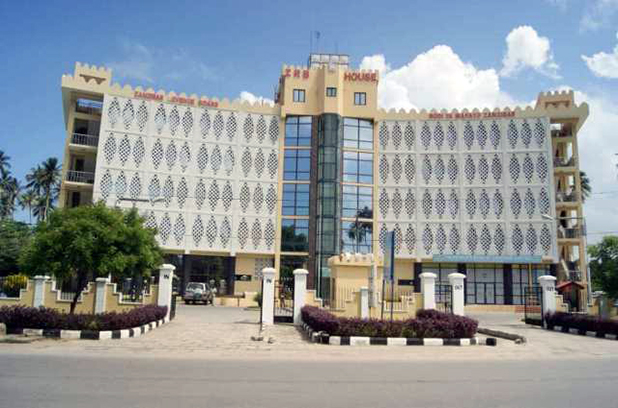
Subscribe and Get a Free Copy
Enter your details below to subscribe for free to our newsletter.

Enter your details below to subscribe for free to our newsletter.

ZANZIBAR has seen revenue collection ‘miracle’ between July and September this 2024/2025 financial year with over 100 percent of the collection target each month, resulting in a record 200bn/- total amount and unprecedented 24 percent growth.
In July, the target was to collect 50.490bn/- but Zanzibar Revenue Authority (ZRA) collected 53.322bn/-, equal to 105.61 percent and a growth of 24.30 percent.
In August, the target was 69.490bn/- but actual collection stood at impressive 71.114bn/-, representing 102.34 percent and 24.24 percent growth rate. While in September, the set revenue target was 74.049bn/- but The Taxman brought into state coffers a total of 76.497bn/-, equal to 103.31 percent performance and 23.99 percent growth rate compared to the same month in the previous 2023/2024 financial year.
By any standard, this performance means that something dramatic has taken place and only someone in authority can explain and make sense of it. That is why ZiBi Magazine asked Mr. Said Ali Mohamed, Acting ZRA Commissioner General, to highlight what has taken place or rather what has been done in Zanzibar recently to enable such a miracle to happen. The acting ZRA Commissioner General was addressing the Press Conference recently.
“Strengthened and increased economic activities between Zanzibar and Tanzania Mainland contributed a lot, resulting from policies and good leadership of President Samia Suluhu Hassan which boosted business environment in both sides of the Union, he said.
“Enormous investment in construction of infrastructure and social services as well as strengthening of economic activities in Zanzibar resulting from implementation of good economic policies of government of Zanzibar under President Dr Hussein Ali Mwinyi also made this feat possible.”
Mohamed highlighted that strengthening good relations with taxpayers, including helping to simplify their business (trade facilitation) as well as reaching and consulting taxpayers through various means, including visiting them and using the ZRA Contact Centre for Taxpayers and the Programme for receiving comments (ZRA Funguka App) led to an increase in voluntary tax compliance in Zanzibar.
He added that enhancement of correct use of systems in taxman magement, including the use of the electronic receipt system (VFMS) and the use of ZIDRAS, a revenue collection system, in parallel with the increase in provision of tax education through various means, also helped.
“Enhanced close monitoring of taxpayers after increasing the number of employees through temporary employment approach boosted provision of tax services hence increase in revenue collection,” he said.
“Strengthening of cooperation between ministries and other institutions that work with ZRA, including Tanzania Revenue Authority, Zanzibar Tourism Commission and all government institutions as well as enhancement of relations and cooperation between ZRA and business community also made this possible.”
With regard to tax regime, Mohamed said that there are various policy reforms, including amendment of Value Added Tax Law Number 4 of 1998 which provides VAT relief for equipment used by persons with special needs such as wheel chairs, artificial limbs and hands, programmable hearing aids, white canes and braille machines.
The changes also provide relief for the distribution of locally made boats as well as importation of refrigerators and refrigerated vehicles into the country. Another important step was harmonization of VAT rate with Tanzania Mainland in insurance services import of cooking gas cylinders.
“Excise Duty Act No. 8 of 2017 was also amended to provide exemption of excise duty for importation of gas liquified petroleum gas and imposition of excise duty on importation of poultry and fish into the country,” he said.
“Another important step was increase of excise duty rate for importation of wine and spirits as well as importation of Shisha and electronic cigarettes.”
Finance Law No. 9 of 2015 was also amended to allow charging a special rate of infrastructure tax to guests staying in small islands or underwater ocean rooms.
Amendment of the Port Services Charge Act No. 2 of 1999 also allowed charging port services fees in US dollars for companies that provide tickets services in US dollars. The changes also increased port service fee rate for passengers traveling outside the United Republic of Tanzania by using cruise ship and yacht.
Mr. Ahmed Haji Saadat, Director of Research at ZRA named top three performing areas as VAT (105,503,007,884/-) compared to 79,228,865,206/- collected in 2023/2024, Airport Service Charge (21,818,837,020/-) compared to 18,406,687,170/- in 2023/2024, Infrastructure Tax (18,669,619,168/-) against 14,081,991,640/- in 2023/2024.
Asked about challenges amid this success, Saadat said there is still low level of voluntary compliance in registration as well as compliance in issuance and demand of receipts plus underreporting of sales by unscrupulous business people.
To strengthen tax revenue collection for the second quarter of the 2024/2025 fiscal year (October – December 2024), Acting ZRA Commissioner General, said ZRA will continue to implement the several strategies, including visits to taxpayers to identify and solve their challenges such as tax disputes on time.
“We will cooperate with business associations in managing taxpayers to connect their commercial systems with the electronic receipts system to facilitate access to accurate information for taxpayers,” he said.
“We will embark on campaigns aimed at encouraging voluntary tax payment in all regions. Campaigns will aim to increase the number of taxpayers by registering as well as encouraging the correct use of the electronic receipt system (VFMS) and tax education in general.”
The authority will develop expertise of its employees by providing them with appropriate training, careful management and good service for taxpayers (customer care). “We will continue taking legal action against few taxpayers who are not properly responsible in fulfilling their duty to pay taxes,” he said. To ensure long-term stability and continued improvement in revenue collection, Saadat said ZRA will continue conducting research with the aim of obtaining scientific answers that will increase the ease of paying taxes by removing the challenges that arise
Mass Communication & PR Strategists (PR, Creative Content Design & Media Management)